3 December
1536 - A proclamation was made to the rebels of the Pilgrimage of Grace offering them a pardon. The rebellion dispersed, but was followed by another rebellion, Bigod's Rebellion, in early 1537. Click here to read more.
1577 – Death or burial of William Downham, Bishop of Chester and former
Chaplain of Elizabeth I before her accession. He was buried in the choir of Chester Cathedral.
1600 – Death of Roger North, 2nd Baron North, peer and politician in Elizabeth I's reign, at his London home in Charterhouse Square. He was given a funeral service at St Paul's, followed by a burial at Kirtling in Cambridgeshire. North was a friend of Robert Dudley, Earl of Leicester, and served Elizabeth I as Privy Councillor and Treasurer of the Household.
4 December
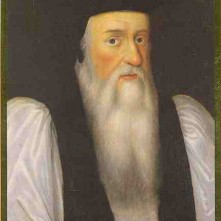
Thomas Cranmer
1506 – Birth of Thomas Darcy, 1st Baron Darcy of Chiche, courtier and administrator. He was the son of Roger Darcy, Esquire of the Body to Henry VII, and his wife, Elizabeth (née Wentworth). Darcy served as a Privy Councillor in Edward VI's reign, and also Captain of the Yeoman of the Guard and Lord Chamberlain of the Household. He was arrested for supporting the Duke of Northumberland's bid to place Lady Jane Grey on the throne, but was pardoned in November 1553.
1514 – Death of Richard Hunne, merchant tailor and leading member of the Lollard community in London. He had been arrested for heresy, and imprisoned in “Lollards' Tower” in St Paul's Cathedral on 14th October after the discovery of a Wycliffite Bible at his home, and his body was discovered hanging in his cell from a silk girdle. It was claimed that he had committed suicide, but a coroner's jury ruled that the hanging had been faked, and that he had been murdered.
1531 – Execution of Rhys ap Gruffudd for treason. He was beheaded after being accused of plotting against the King, although his biographer, R.A. Griffiths, points out that his trial was a “show trial” consisting of contrived testimonies and coached witnesses.
1555 - Papal sentence was passed on Thomas Cranmer in Rome, depriving him of his archbishopric "and of all ecclesiastical dignities". Permission was also given for the secular authorities to decide on his fate.
1557 – Death of Robert King, Abbot of Thame and Bishop of Oxford. He was buried in Oxford Cathedral. King was one of the judges who sat in judgement at the trial of Thomas Cranmer in 1555.
1585 – Death of John Willock, physician and Scottish reformer, at Loughborough in Leicestershire. He was buried at his church, All Saints, in Loughborough. Willock became the Chaplain of Henry Grey, Marquis of Dorset, and father of Lady Jane Grey, in the 1540s.
1595 – Death of William Whitaker, theologian and Master of St. John's College, Cambridge, at the master's lodge after going to bed with a hot “ague”. He was buried at St John's. His works included Liber precum publicarum (1569), Ad rationes decem Edmundi Campiani jesuitæ responsio (1581), responses to Nicholas Sander and Edmund Campion, Disputatio ad sacra scriptura and Adversus Thomae Stapletoni (1594).
1609 – Death of Alexander Hume, Scottish poet and writer. He is known for his 1599 “Hymnes, or Sacred Songs”, which includes his great poem “Of the Day Estivall” which describes a summer's day, from dawn until dusk.
5 December
1556 – Birth of Anne de Vere (née Cecil), Countess of Oxford, daughter of William Cecil, 1st Baron Burghley, and his second wife, Mildred (née Cooke), and wife of Edward de Vere, 17th Earl of Oxford. The marriage was not the happiest of matches, with de Vere refusing to acknowledge their daughter Elizabeth as his. The couple were eventually reconciled.
1558 – Death of Gabriel Dunne (Donne), Abbot of Buckfast and 'keeper of the spiritualities', in the diocese of London. He was buried at St Paul's, before the high altar.
1560 – Death of King Francis II of France and King Consort of Scotland as husband of Mary, Queen of Scots. Francis was aged just fifteen when he died from some type of ear infection. He was succeeded as King of France by his brother, Charles, who became Charles IX. Francis was buried at the Cathedral Basilica of Saint-Denis on 23rd December.
1562 – Death of Sir Humphrey Browne, judge. He was buried at St Martin Orgar. London. Browne had served Henry VIII as a Sergeant-at-Law, but lost the office when he was imprisoned for hunting in Waltham Forest and for, allegedly, advising criminals on how to avoid having their possessions forfeited.
1593 – Death of Sir Rowland Hayward (Heyward), merchant adventurer, President of St Bartholomew's Hospital and member of Parliament, in London. He was buried at St Alfege, London Wall.
6 December
1549 – Death of John Wakeman (born Wiche), Abbot of Tewkesbury and Bishop of Gloucester, in Forthampton, Gloucestershire. He took the name Wakeman when he surrendered his monastery to the commissioners in 1540.
1555 – Death of Thomas Cottisford, clergyman, translator and reformer, at Frankfurt while in exile in Mary I's reign. In Edward VI's reign, Cottisford published a translation of Zwingli's confession of faith.
1573 – Death of Sir Hugh Paulet, soldier and administrator, at Hinton St George in Somerset. He was buried in the parish church there. Paulet was one of Henry VIII's executors and served Edward VI as Captain of Jersey and Governor of Mont Orgueil Castle. In Mary I's reign, he was made Vice-President of the Welsh marches, and in Elizabeth I's reign he served as a special adviser to Ambrose Dudley, Earl of Warwick, at Le Havre.
6th December was the Feast of St Nicholas. Tudor people would often celebrate the Boy Bishop, a tradition which had been going on since the 10th century. Click here to read more about it.
7 December
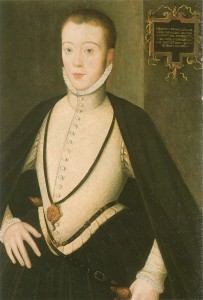
Henry Stuart, Lord Darnley
1545 - Traditional date given for the birth of Henry Stewart (Stuart), Duke of Albany and Lord Darnley, at Temple Newsam, Yorkshire. Click here to read more about him.
1549 – Hanging of Robert Kett, leader of Kett's Rebellion in Norfolk. Kett was hanged from the walls of Norwich Castle after being found guilty of treason by a commission of oyer and terminer. He had been captured the day after the Battle of Dussindale, which ended the rebellion. His brother, William, was also hanged on the same day, but at Wymondham Abbey. Click here to read more about Kett's Rebellion.
1573 – Death of John Thorne, Master of the Choristers and Organist of York Minster, composer and poet, in York. He was buried in York Minster.
1613 – Death of Thomas Hesketh, botanist and physician, at Clitheroe Castle. John Gerard used Hesketh as a source for his “Herball” and was known for supplying gardens and nurseries with seeds and plants, including wild flowers.
1626 – Death of Sir John Davies, lawyer, politician, Attorney-General for Ireland and poet. Davies was found dead on the morning of the 8th December, the day that he was going to be installed as Chief Justice of the King's Bench. He was buried at St Martin-in-the-Fields, Westminster, and John Donne preached at his funeral service. Davies sat in the House of Commons in the reigns of Elizabeth I and James I, and was a favourite of Elizabeth I. His work included the 1599 “Hymns of Astraea”, which he addressed to the queen, and “Orchestra” (1595).
8 December
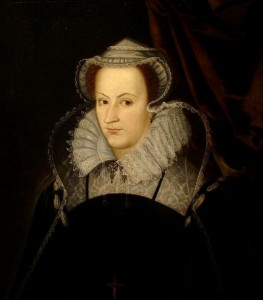
Mary, Queen of Scots
1538 – Death of Sir William Coffin, courtier and Master of the Horse to Queens Anne Boleyn and Jane Seymour, at Standon in Hertfordshire. It is thought that he died of the plague because his wife, Margaret, wrote to Cromwell saying that Coffin had “died of the great sickness, full of God's marks all over his body”. He was buried at the parish church in Standon.
1542 - Birth of Mary, Queen of Scots at Linlithgow Palace in Scotland. She was the daughter of James V of Scotland and his second wife, Mary of Guise, and the granddaughter of Margaret Tudor (Henry VIII’s sister) and James IV of Scotland. She became queen when she was just six days old. Click here to read more about Mary.
1558 – Death of Hugh Weston, Dean of Windsor, at William Wynter's house in Fleet Street, London. He was buried at the Savoy. Weston had just been released from imprisonment in the Tower of London due to his ill health. He had been deprived of his deanery for alleged indecency in August 1557, and was arrested at Gravesend while he was on his way to Rome to appeal against his deprivation.
8th December is also the Feast of the Immaculate Conception and you can click here to read more about that.
9 December
1522 – Death of Hugh Ashton, Archdeacon of York and former Comptroller of Lady Margaret Beaufort's household. He died at York was was buried at York Minster. Ashton helped Lady Margaret with the arrangements involved in founding Christ's College and St John's at Cambridge and, as an executor of her will, supervised the building of St John's.
1538 - Execution of Sir Edward Neville, courtier, Gentleman of the Privy Chamber and son of George Neville, 2nd Baron Bergavenny, at the Tower of London. Neville had been arrested for treason along with his brother-in-law, Henry Pole, 1st Baron Montagu, Henry Courtenay, Marquis of Exeter, and Courtenay's wife and son in November 1538. Neville was buried at the Tower's Chapel Royal, St Peter ad Vincula.
1541 – Agnes Tilney, the Dowager Duchess of Norfolk and step-grandmother of Catherine Howard, who had been detained at the Lord Chancellor's home after Catherine's fall, was questioned regarding the location of her money and jewels.
1591 – Death of Robert Balthrop, Sergeant-Surgeon to Elizabeth I. Balthrop was buried at St Bartholomew-the-Less Church, in the grounds of St Bartholomew's Hospital.

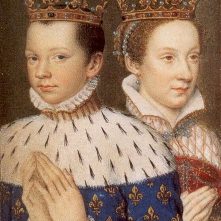
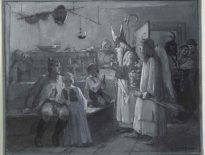
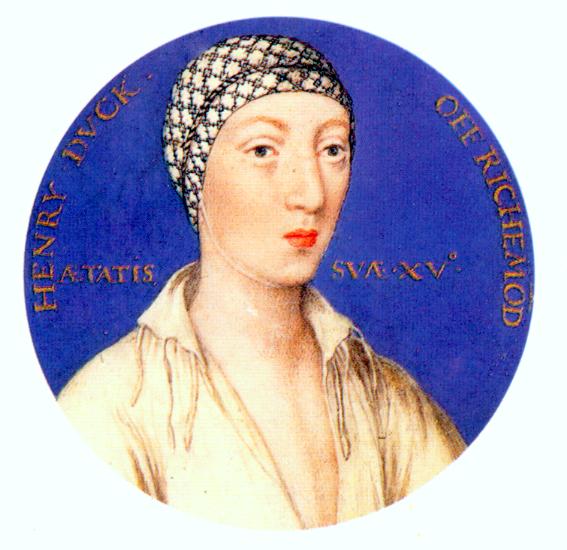
Leave a Reply